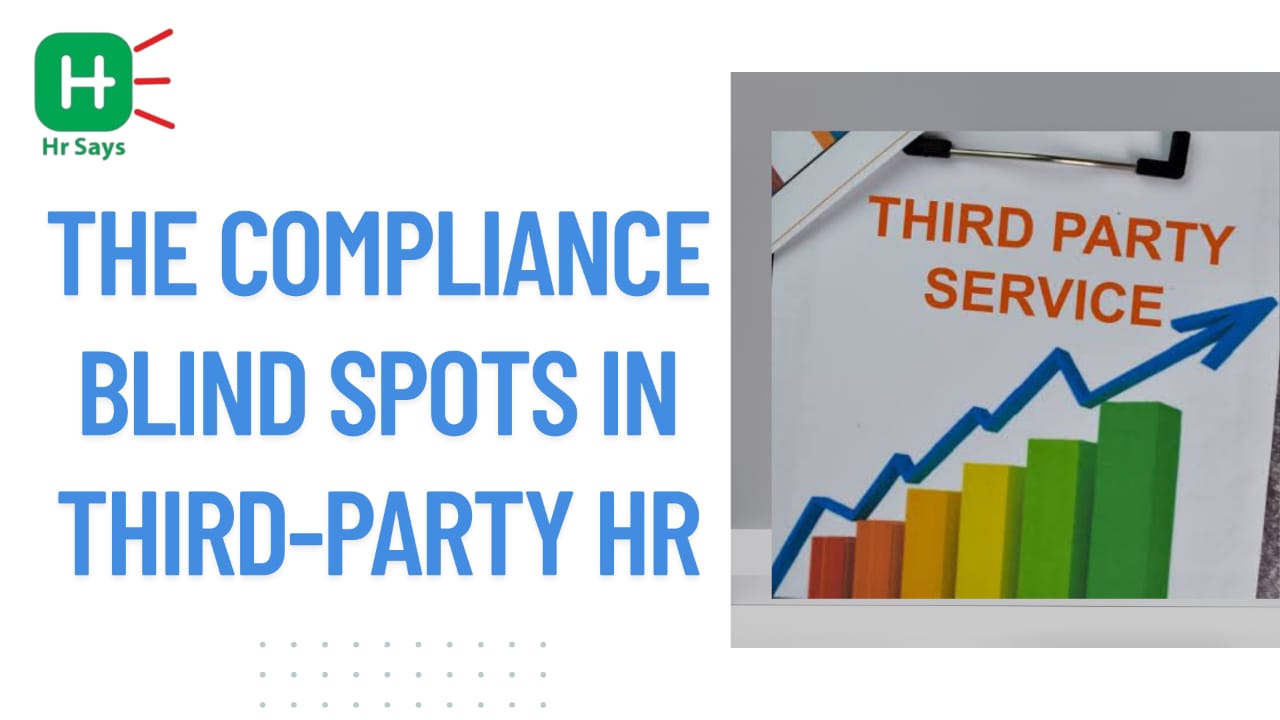There’s a quiet relief that washes over HR teams when payroll gets outsourced. It's the sigh of no longer calculating arrears, juggling tax slabs, or fixing that one salary slip error every month. For growing companies, outsourcing feels like a blessing. But what many realize too late is that when you hand over payroll, you don’t hand over accountability. And unfortunately, laws don’t offer forgiveness for ignorance.
It starts with an innocent signature on a vendor contract. A trusted payroll provider, promising timely disbursements, compliant filings, and full automation. They sell speed and convenience, and HR departments who are already stretched breathe easier. But somewhere between outsourcing the task and assuming it’s being done right, critical details get lost. The devil, it turns out, is not just in the data but in the deadlines, documentation, and due diligence we didn’t ask for.
A Mumbai based mid sized company recently discovered this the hard way. Their payroll partner missed a deadline to deposit PF contributions twice. A simple delay, easily fixed, they thought. But what followed was a cascade of penalties, labor department queries, and employee unrest. The vendor apologized. The HR head had to explain. Because in the eyes of the law, it wasn’t the outsourcing partner who was responsible. It was the employer.
This is the silent risk of HR outsourcing. You may offload the function, but the liability stays anchored to your desk. Payroll compliance isn’t just about cutting cheques. It’s an intricate web of local labor laws, tax codes, social security norms, and state-specific regulations. And when outsourced partners are not fully aligned with these or when they miss updates the fallout lands on HR.
The first law they broke? Not filing TDS in time, leading to TDS non-compliance. The second? Misclassification of contractual staff on permanent rolls, resulting in violation of minimum wage norms. And the third the most damaging was data privacy. Employee bank details were stored on unsecured third party servers without consent, triggering a serious breach of India’s IT Act and opening up the possibility of further action under the DPDP Act.
Each of these errors could have been prevented. But they weren’t, not because of negligence, but because of overconfidence in an external system. It’s easy to forget that payroll outsourcing doesn’t mean setting and forgetting. It means reviewing, auditing, and owning every piece of data and every missed comma. It means knowing exactly who has access to your employees sensitive financial records and ensuring that each transaction, even the most minor one passes legal muster.
HR outsourcing risks are not new. But what makes payroll especially volatile is that it touches every employee, every month, with zero margin for error. When your third party provider cuts corners or misses a regulation, it’s your team’s trust that takes the hit not theirs. Legal outsourcing challenges come with real reputational costs, and compliance isn’t a service you can blindly delegate.
What many HR heads now realize is that outsourcing payroll requires more governance, not less. It needs escalation matrices, quarterly audits, shared checklists, and cross verification of every single statutory output. It demands internal ownership, because external delegation is never a legal escape route.
There is also a psychological trap here. The belief that big name payroll providers are immune to error. But scale does not guarantee specificity. Most vendors manage hundreds of clients, across geographies and industries. Unless your team meticulously defines every rule from LTA exemptions to gratuity brackets to shift allowances you’re relying on a generic formula to interpret laws that demand precision.
The real failure here isn’t in choosing to outsource. It’s in not asking the right questions. Who is liable if there’s a tax default? How is sensitive data encrypted? What happens if the vendor gets hacked? Are they keeping up with state wise labor law amendments? And do they even flag unusual activity or just process what they’re given?
Outsourcing payroll can absolutely be efficient but it is not immune to HR ethics or legal frameworks. Payroll compliance is not just about money, it’s about trust. Employees expect their salaries, taxes, and benefits to be right always. They don’t know, and shouldn’t have to know, that a third party is involved. All they see is the brand they work for. And if something goes wrong, they don’t email the vendor. They walk into HR.
This is why compliance in payroll must become proactive, not reactive. Companies must assume the worst case scenario and prepare accordingly, from indemnity clauses in vendor contracts to internal training on labor laws. Because the law doesn’t bend for intention. It only looks at the outcome.
At Hrsays, we believe payroll isn’t just a transaction. It’s a trust agreement, between employer and employee, quietly renewed every month. Breaking it even unintentionally erodes something deeper than compliance. It erodes credibility.
So yes, go ahead and outsource. But never, ever outsource your attention. Because while your payroll vendor may hit "send" it’s your name on the cheque, and your signature on the violation

 Go ahead and outsource. But never, ever outsource your attention. Because while your payroll vendor may hit "send" it’s your name on the cheque, and your signature on the violation.
Go ahead and outsource. But never, ever outsource your attention. Because while your payroll vendor may hit "send" it’s your name on the cheque, and your signature on the violation.








.jpeg)
.jpeg)

.jpeg)





.jpeg)



.jpeg)

.jpeg)



